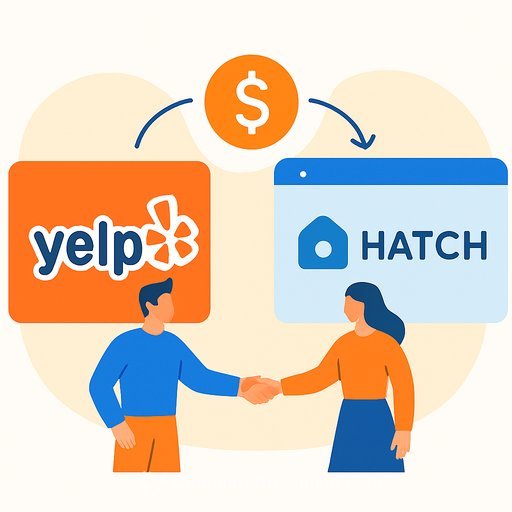Codi launches an AI platform to automate office management
Codi, founded by Christelle Rohaut and Dave Schuman, has shifted from a flexible office marketplace to an AI software platform that runs day-to-day office operations. Backed by Andreessen Horowitz, the company raised a $16 million Series A in 2022 and $23 million to date. After a beta in May, the product is now officially live.
The promise is straightforward: plug in your existing vendors, and the system coordinates office logistics like pantry restocking and cleaning on its own. In its first five weeks of beta, Codi hit $100,000 in ARR and signed 40 new companies, including TaskRabbit and Northbeam.
Why managers should care
Office overhead isn't just rent. Administrative time to keep an office running can easily top $80,000 a year. Post-pandemic, the traditional office manager role is often unfilled or stretched across event planning, culture, and ad hoc ops.
Meanwhile, return-to-office continues gaining ground, pushing more teams back into hybrid or on-site rhythms. For context, occupancy data tracked by Kastle shows steady in-office activity across major U.S. metros. See current RTO trends.
What Codi automates today
- Vendor coordination: It takes the vendors you already use and manages the back-and-forth.
- Pantry restocking and cleaning: Recurring needs get scheduled, handled, and confirmed without manual follow-ups.
- Physical operations: Beyond ticketing and room booking, it coordinates the work that happens offline in your space.
- Curated provider network: When needed, it can tap into a vetted set of service partners.
Rohaut's framing is clear: "offices can run themselves, just like cars can drive themselves." The intent isn't to replace culture or people; it's to remove the logistical drag so your team can focus on higher-value work.
How it works
Codi trained its system on years of office operations data and playbooks gathered while managing spaces for clients. You connect your vendors and set standards (what to restock, how often to clean, who approves exceptions). From there, the platform coordinates the work and closes the loop.
Rohaut positions Codi against two categories: legacy management firms and workplace experience tools (e.g., Envoy). The claim is that legacy firms still require oversight and manual coordination, while typical workplace platforms stop short of executing physical operations. Codi's angle is autonomous execution plus integrated service providers.
Cost and ROI
Codi charges a monthly management fee, similar to a SaaS subscription. According to the company, it's a fraction of the cost of a full-time office manager, part-time support, or a fractional EA. They also estimate the system can save hundreds of hours per year in admin tasks.
If your admin costs are already high or scattered across multiple team members, the ROI path is simple: reallocate those hours to culture, hiring, client work, or sales enablement-and cap the rest with a predictable fee. The key is to measure it.
Quick start playbook for managers
- Audit your ops: List vendors, frequency of service, average monthly spend, and the people currently handling coordination.
- Define your rules: Restocking thresholds, cleaning schedules, approval limits, and escalation paths.
- Pilot one location: Start with a single office or floor for 30-60 days. Track tickets closed, time saved, issues prevented, and spend variance.
- Lock in accountability: Set SLAs with vendors. Require photo confirmations and timestamps for work completed.
- Integrate budgets: Route approvals by dollar thresholds. Push receipts to finance automatically if supported.
- Review and scale: If time saved and service quality meet your bar, extend to additional sites.
What to watch for
- Data and access: Confirm how vendor data, building access details, and staff info are stored and secured. Map who can approve what.
- Exception handling: No system eliminates edge cases. Keep a human in the loop for off-hours issues, urgent repairs, or ad hoc events.
- Vendor flexibility: Ensure you can keep preferred local vendors, switch providers if performance slips, and avoid lock-in.
- Change management: Set expectations with internal teams. Make it clear where to submit requests and how status is tracked.
Traction and who it's for
Codi reports rapid early adoption: $100,000 in ARR within five weeks of beta and 40 new companies signed. A good portion of prior marketplace clients are transitioning to the new platform.
If you run a hybrid office, manage multiple locations, or lack a dedicated office manager, this fits. If your team already spends hours a week nudging vendors, it's worth a pilot.
Bottom line
Codi started as a marketplace. Now it's a system for running the offline parts of your office with minimal oversight. For leaders, the pitch is leverage: fewer hours lost to logistics, more time on culture and growth.
If you're exploring AI for office operations, you can also browse practical tools and courses that focus on workplace automation here: Office tools and automation resources.
Your membership also unlocks:






